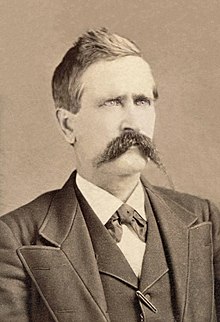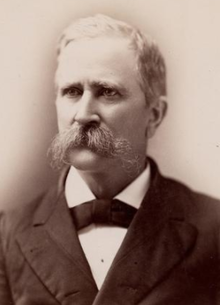
Presidential elections were held in the United States on November 4, 1884. Democratic Governor Grover Cleveland of New York narrowly defeated Republican James G. Blaine of Maine. It was set apart by mudslinging and personal allegations that eclipsed substantive issues, such as civil administration change. Cleveland was the first Democrat elected president of the United States since James Buchanan in 1856, the first to hold office since Andrew Johnson left the White House in 1869, and the last to hold office until Woodrow Wilson, who began his first term in 1913. For this reason, 1884 is a significant election in U.S. political history, marking an interruption in the era when Republicans largely controlled the presidency between Reconstruction and the Great Depression.

The Prohibition Party is a political party in the United States known for its historic opposition to the sale or consumption of alcoholic beverages and as an integral part of the temperance movement. It is the oldest existing third party in the United States and the third-longest active party.

Silas Comfort Swallow was a United States Methodist preacher and prohibitionist politician who was a lifelong opponent of slavery. He was the Prohibitionist presidential nominee in 1904.

Arthur Sewall was an American shipbuilder from Maine, best known as the Democratic nominee for Vice President of the United States in 1896, running mate to William Jennings Bryan. From 1888 to 1896, he served as a member of the Democratic National Committee and unsuccessfully ran for Maine's Senate seat against Eugene Hale. The only elective offices Sewall held were as councilman and alderman in the town of Bath, Maine.
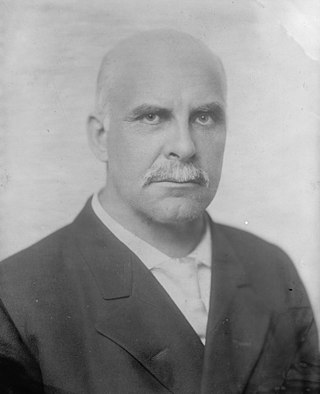
Eugene Wilder Chafin was an American politician and writer who served as the Prohibition Party's presidential candidate during the 1908 and 1912 presidential elections. He was active in local politics in Wisconsin, statewide elections in Wisconsin, Illinois, and Arizona, and campaigned throughout the United States and the world in favor of the prohibition of alcohol.

James Black was an American temperance movement activist and a founder of the Prohibition Party. Black served as the first presidential nominee of the Prohibition Party during the 1872 presidential election.
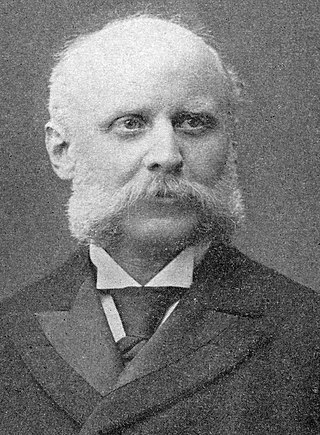
Joshua Levering was a prominent Baptist and a candidate for president of the United States in 1896. He was president of the trustees of The Southern Baptist Theological Seminary in Louisville, Kentucky, president of the Southern Baptist Convention, co-founder of the American Baptist Educational Society, and co-founder of the Layman's Missionary Movement.
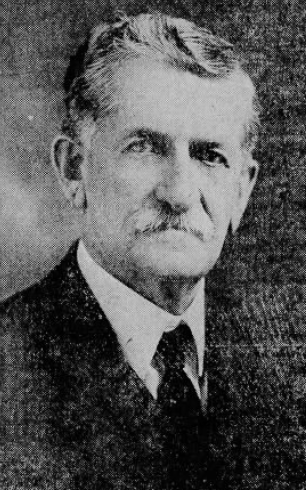
Herman Preston Faris was an American businessman and politician who served as treasurer of the Prohibition National Committee, twice as the Prohibition Party candidate for governor of Missouri, and was the party's presidential candidate during the 1924 presidential election.
Claude A. Watson was an American politician, lawyer, businessman, and minister from Hermon, California, who was nationally active in the temperance movement and the Prohibition Party. He is currently the most recent presidential nominee of the Prohibition party to have received over 100,000 votes.

Gideon Tabor Stewart was an American lawyer and politician who served as the Prohibition Party's vice presidential nominee in 1876. He was elected three times as grand worthy chief templar of the Good Templars of Ohio.

William Daniel was an American politician from the state of Maryland. A lawyer, he was a noted prohibitionist and abolitionist. He served in both houses of the Maryland state legislature, first as a Whig, and later as a member of the American Party. Later, as a Republican, he was a member of the convention that wrote Maryland's constitution in 1864. He helped found the Maryland Temperance Alliance in 1872 and served as its president for twelve years. Daniel was the vice presidential nominee and running mate of John St. John on the Prohibition Party ticket in the presidential election of 1884. Placing third in the election that year, he continued his involvement with the cause of temperance until his death in 1897.

Hale Johnson was an American attorney and politician who served as the Prohibition Party's vice presidential nominee in 1896 and ran for its presidential nomination in 1900.

Charles Eugene Bentley was an American politician who served as the presidential nominee of the National Party, an offshoot party created by the broad gaugers faction of the Prohibition Party, during the 1896 presidential election.
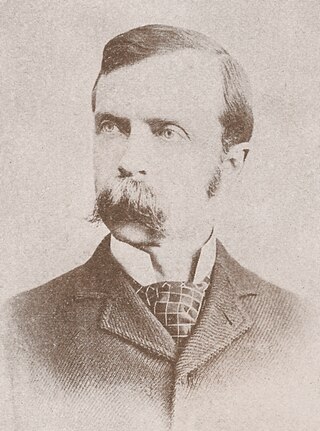
John Granville Woolley was an American politician, lawyer, and public speaker who served as the Prohibition Party's presidential candidate in 1900.

James Britton Cranfill was an American religious figure and prohibitionist who served as the Prohibition Party's vice presidential nominee in 1892.

John Anderson Brooks was a religious scholar and prohibitionist who served as the Prohibition Party's vice presidential nominee during the 1888 presidential election.

Oliver Wayne Stewart was an American politician who served as the chairman of the Prohibition Party and in the Illinois state House of Representatives.
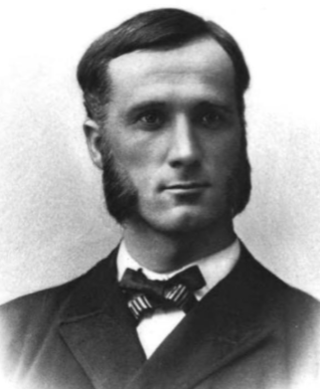
John Bird Finch was an American politician and educator who served as the chairman of the Prohibition Party.

Harvey Wesley Hardy was an American politician who served as the mayor of Lincoln, Nebraska.

The 1884 Prohibition National Convention was a presidential nominating convention held at Lafayette Hall, in Pittsburgh, Pennsylvania from July 23–24, 1884, to select the Prohibition Party's presidential ticket for the 1884 presidential election.
